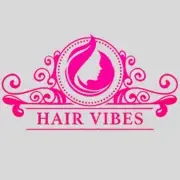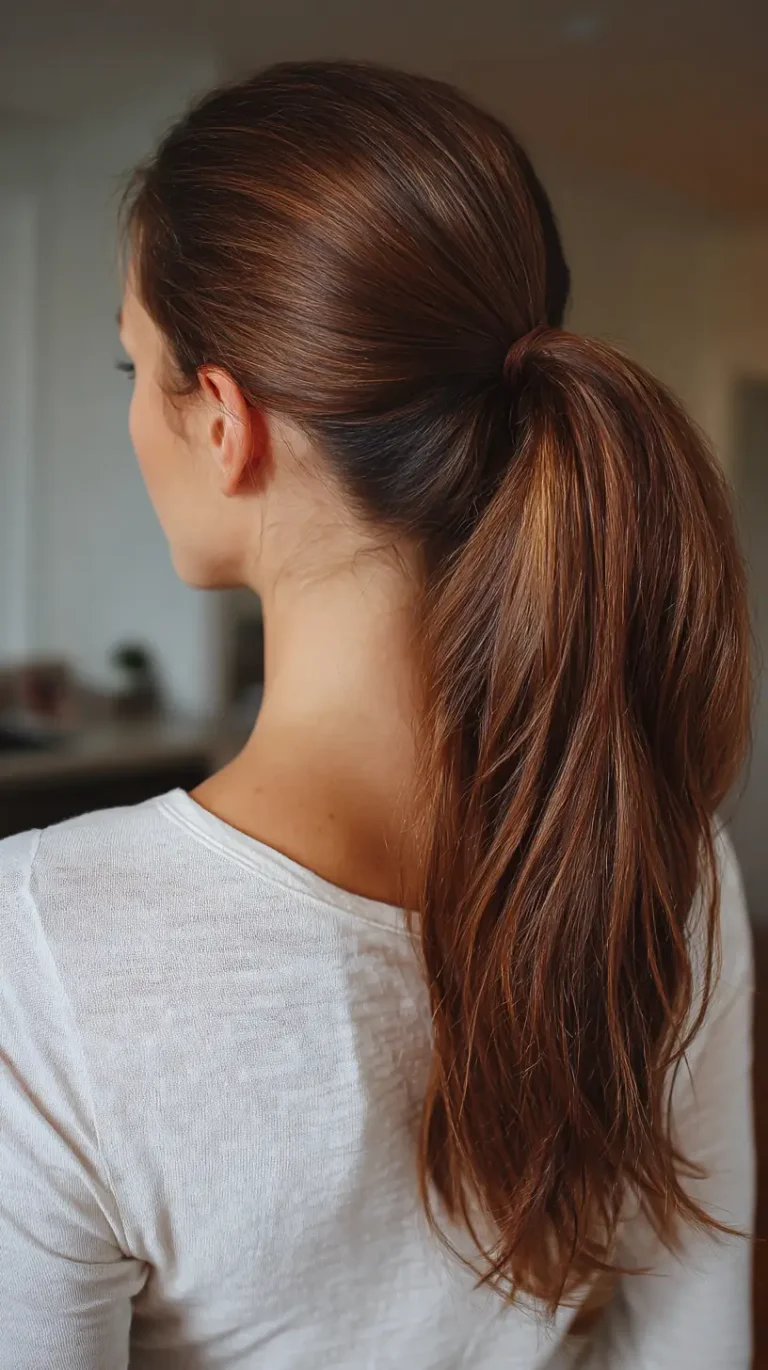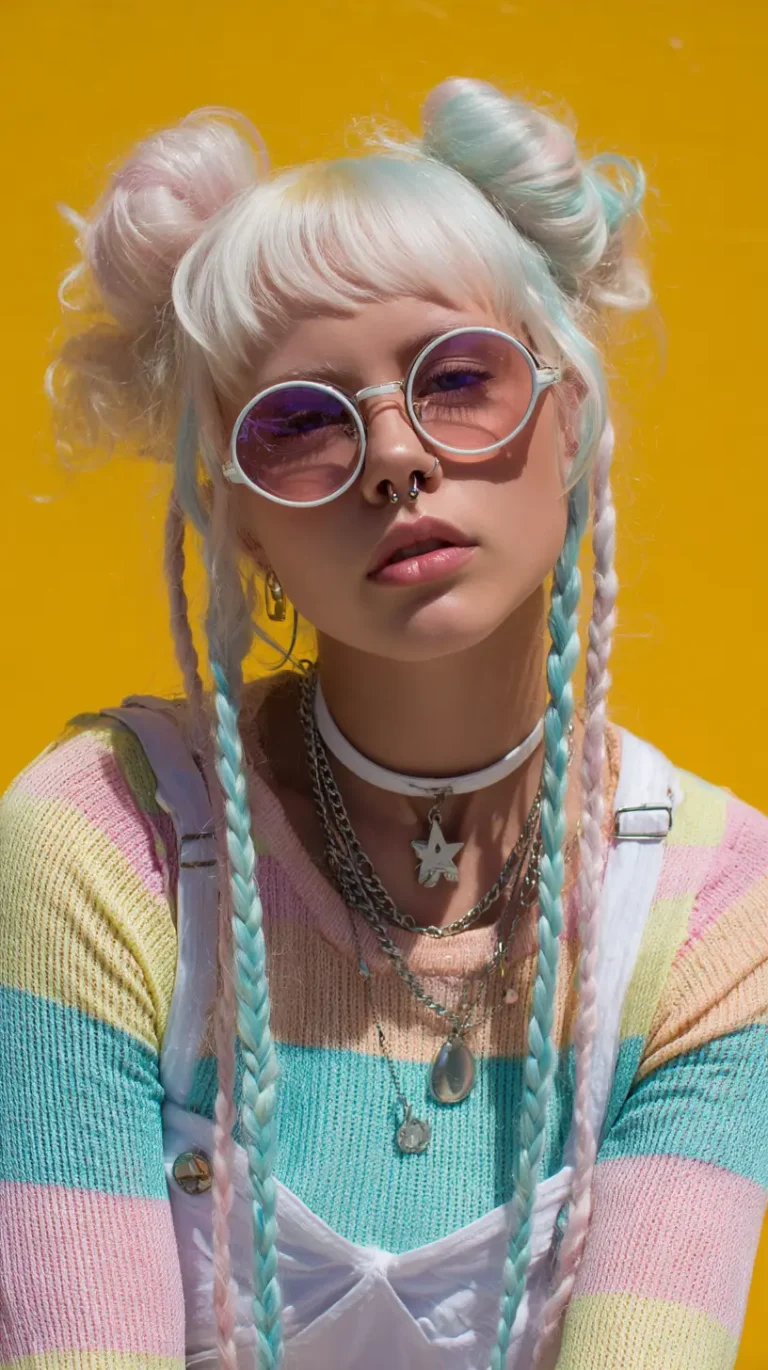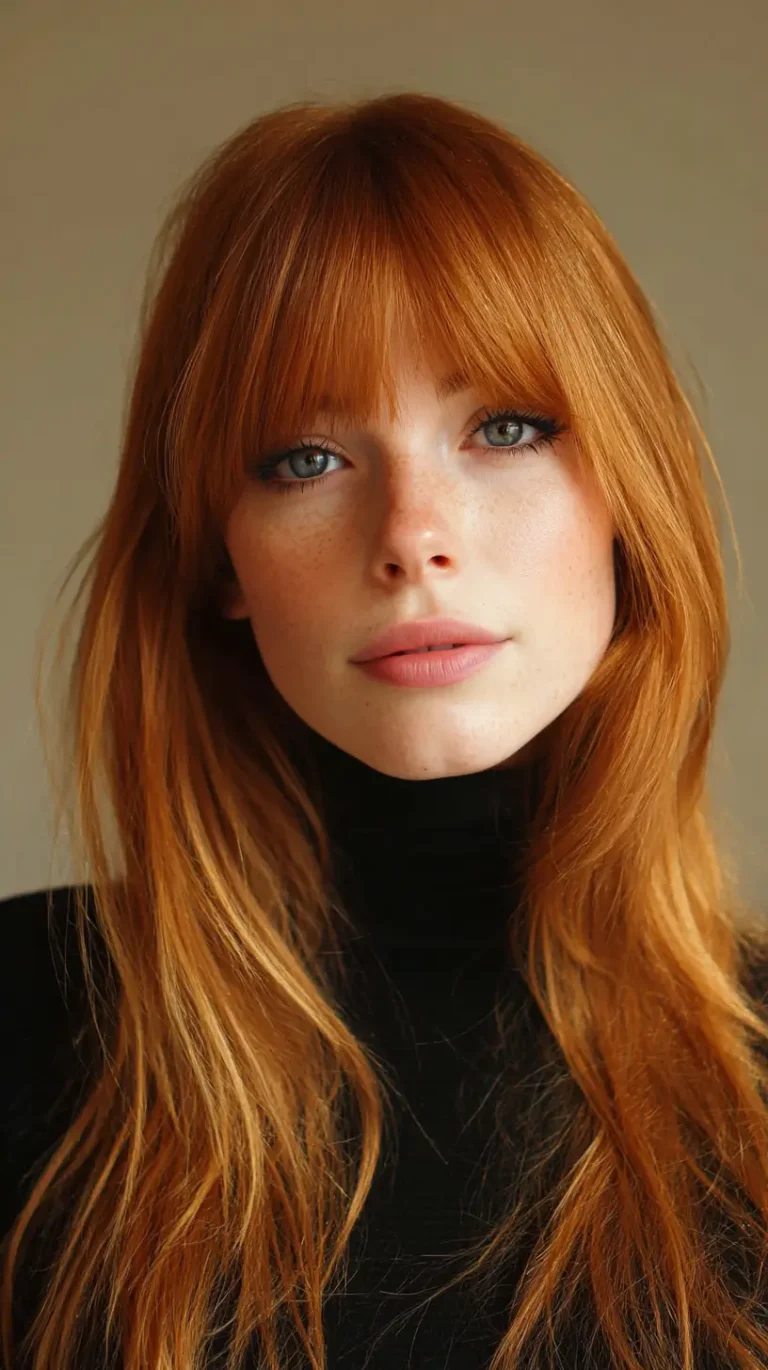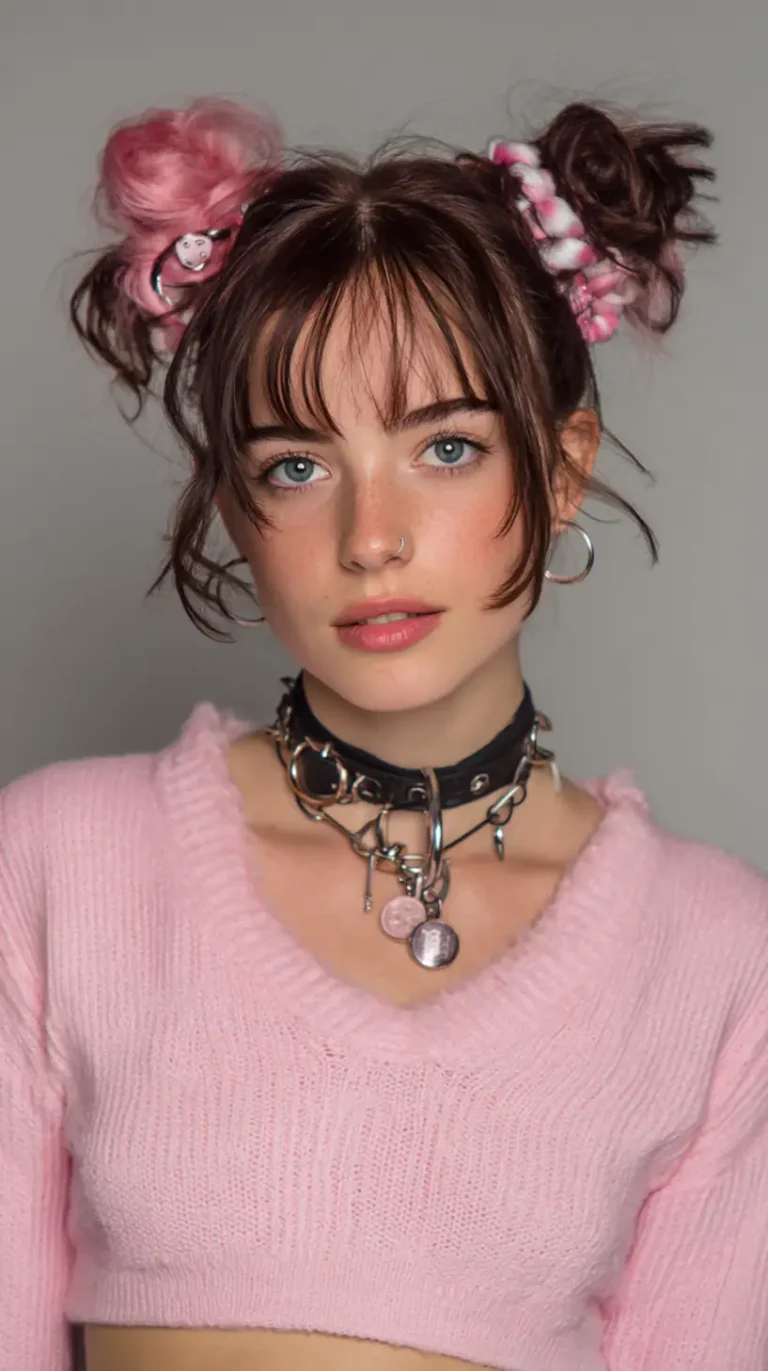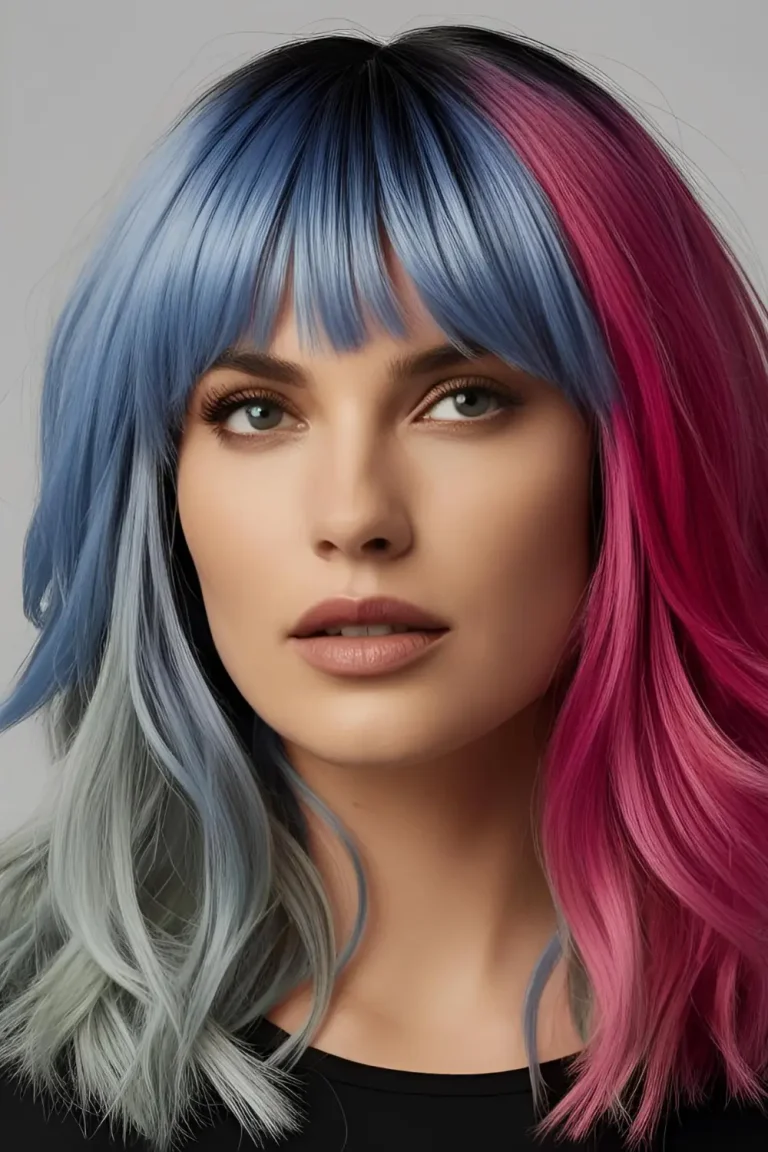15 Wolf Cuts Without Bangs Might Not Be the Best Option for Everyone
The wolf cut has quickly become one of the most popular and daring trends in the hairstyling world, known for its edgy, layered look that channels a bold and youthful vibe. Traditionally, the wolf cut is often paired with bangs—particularly curtain bangs—but the version without bangs is also making waves. While it can look stunning on certain individuals, the “wolf cut without bangs” might not be the best choice for everyone. Let’s explore the potential downsides of this trending style and why it might not suit every face shape or lifestyle.
1. Lack of Face-Framing Benefits
One of the key benefits of the classic wolf cut with bangs is that the bangs frame the face, drawing attention to the eyes and cheekbones. Without bangs, the wolf cut can lose that face-framing effect, which can make the look feel less cohesive. For those with more angular or harsh facial features, the absence of bangs can make the haircut feel unbalanced, as the layers focus mainly on the hair’s texture rather than complementing the face. Without bangs, the wolf cut may not highlight or soften your face shape as effectively as it could.
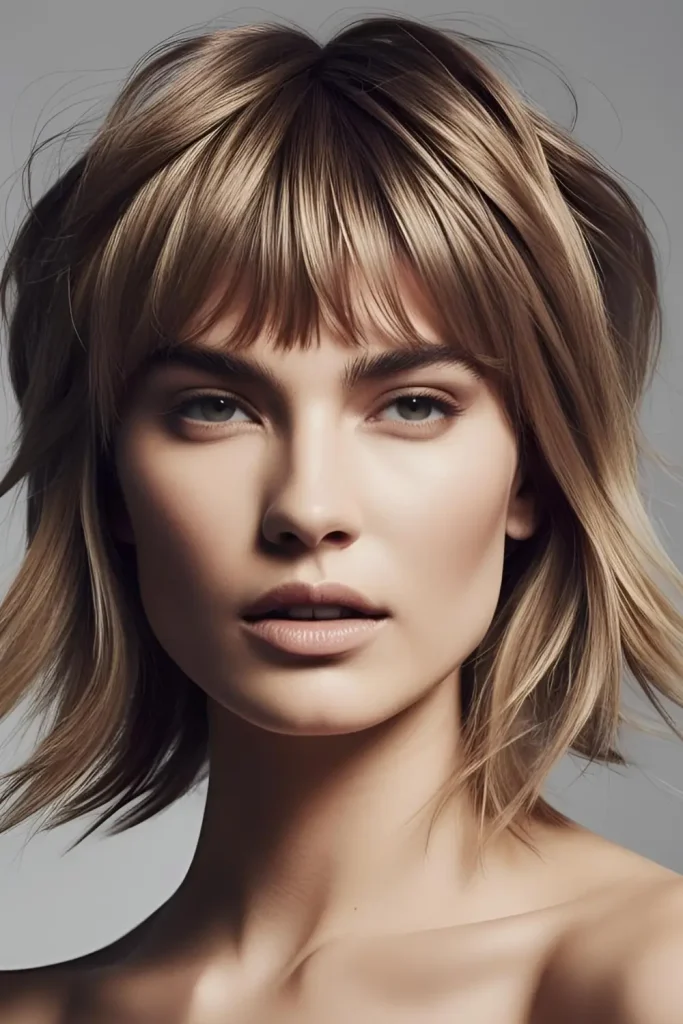
2. The Style Can Feel Flat Without the Added Layers in Front
Bangs add structure and volume at the front of the hairstyle, creating a more layered and dynamic look. Without them, the wolf cut can sometimes appear less voluminous at the front, which may make the overall look feel flat or lack depth. While the back and sides of the cut are typically voluminous and textured, the front may not have the same dramatic effect. This can make the haircut feel less exciting, especially for those looking for a bold, high-impact hairstyle.
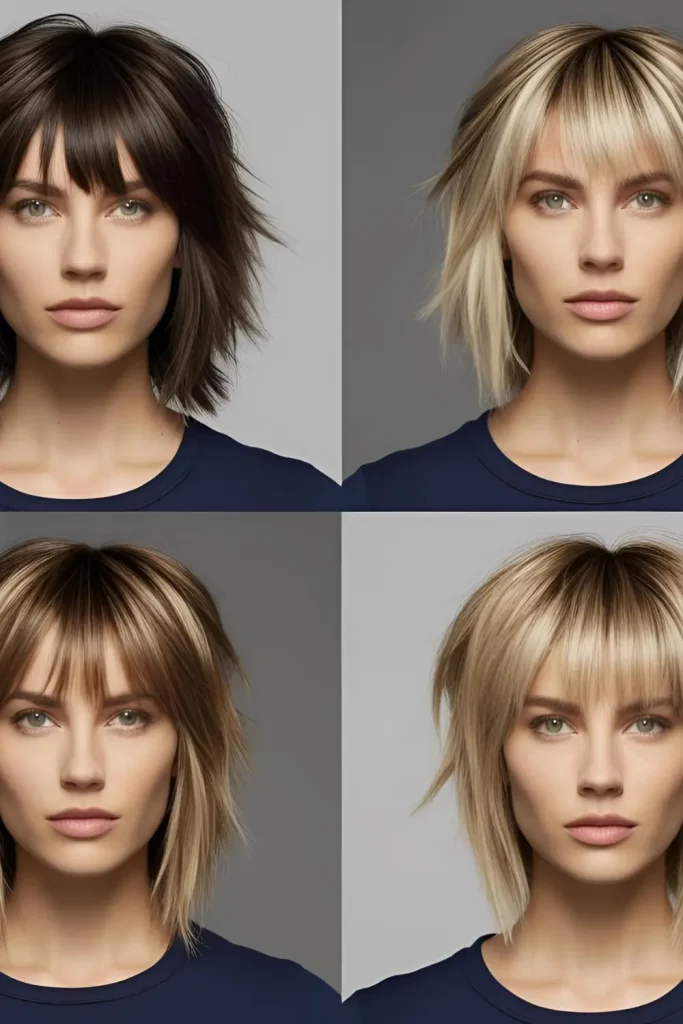
3. Less Versatility for Styling
One of the signature features of the wolf cut is its textured layers, but without bangs, it can sometimes be harder to style. The wolf cut with bangs offers a lot of options for variations, like side-swept bangs or curtain bangs, that change the overall vibe of the haircut. Without bangs, you’re left with only the layers to work with, which can limit your styling options. For individuals who like to switch up their look regularly, the lack of bangs might feel limiting, as it can be harder to experiment with different styles.
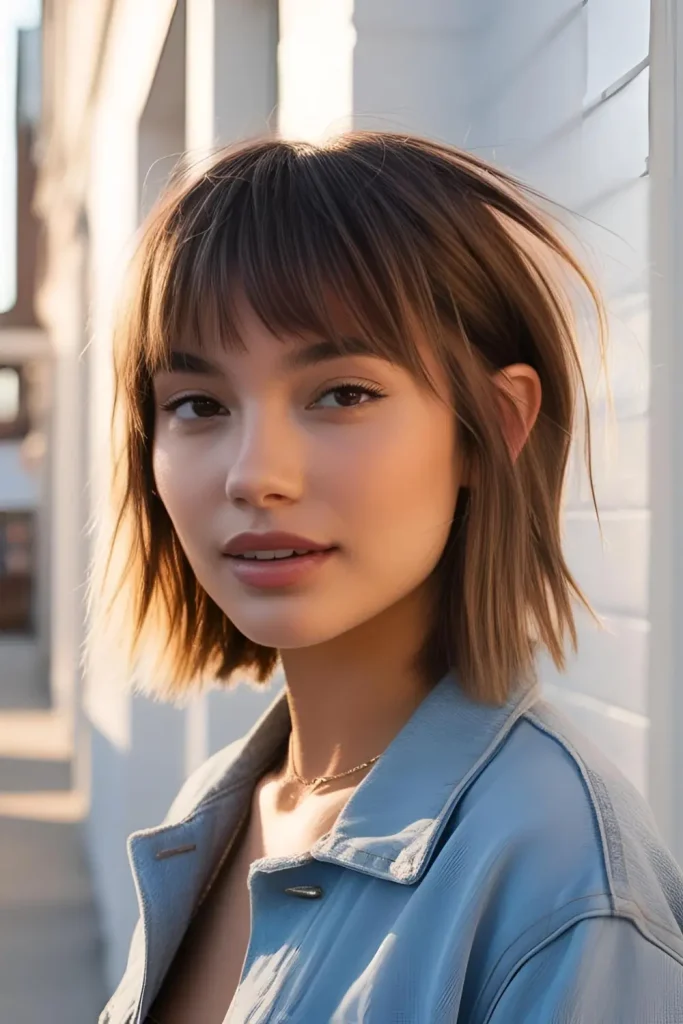
4. Not Always Suitable for Every Face Shape
While the wolf cut with bangs can soften and complement certain face shapes—especially round or square faces—eliminating the bangs can make the cut more harsh for some people. If you have a heart-shaped or long face, the absence of bangs can emphasize the length of your face, making it appear more elongated. The layered texture of the wolf cut can also sometimes highlight sharp angles in the face, which can be unflattering without the softer framing effect that bangs provide.
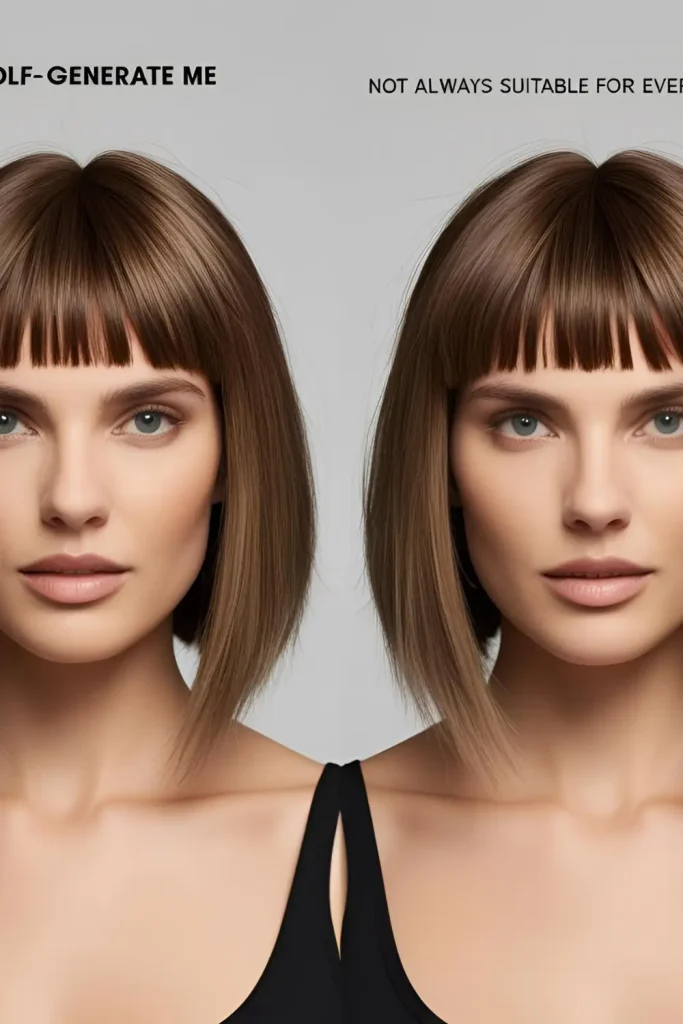
5. Difficult to Grow Out
The wolf cut with bangs can be a challenging style to grow out, but the version without bangs can be even more difficult to manage. Without the bangs to help transition the cut, growing out the layers can result in awkward stages. The layers at the back may grow out unevenly, and the front can feel more disconnected from the rest of the hair, making it hard to keep the cut looking intentional. If you’re planning to grow out your wolf cut, the absence of bangs may result in a more noticeable and frustrating process.
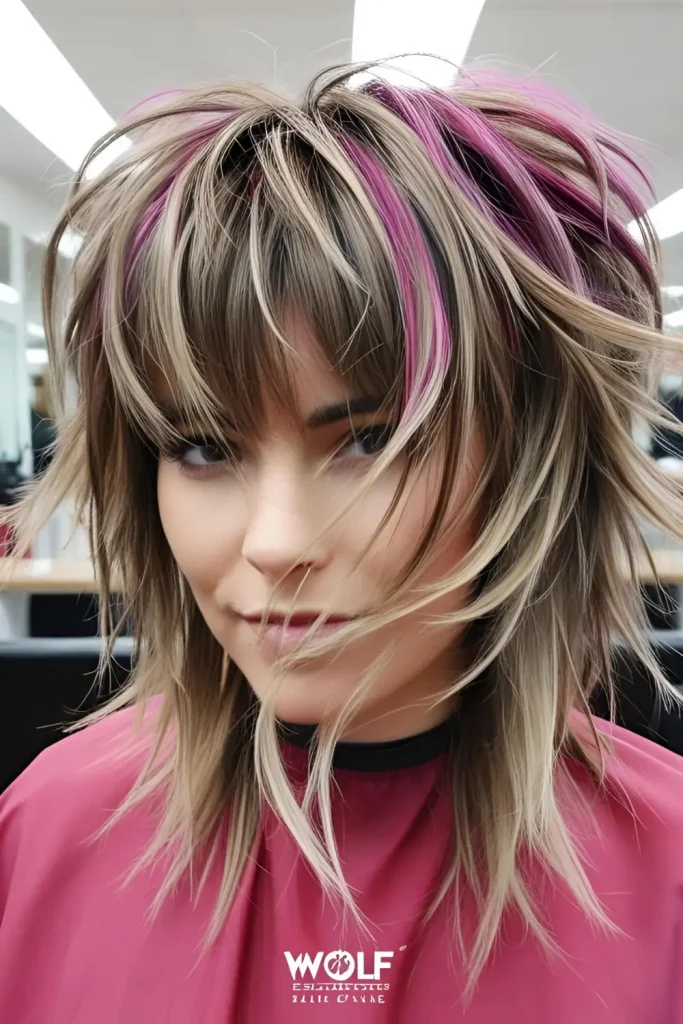
6. May Not Suit Those With Fine or Thin Hair
The wolf cut is a voluminous, textured style that works best on thicker hair types. Without bangs, the lack of front layers can make fine or thin hair look even less full. The fullness that comes from bangs is often essential to achieving the “fullness” effect that the wolf cut is known for. Those with fine or thin hair may find that, without bangs, the layers do not provide enough volume to make the style pop, leaving them with a flat or limp appearance.
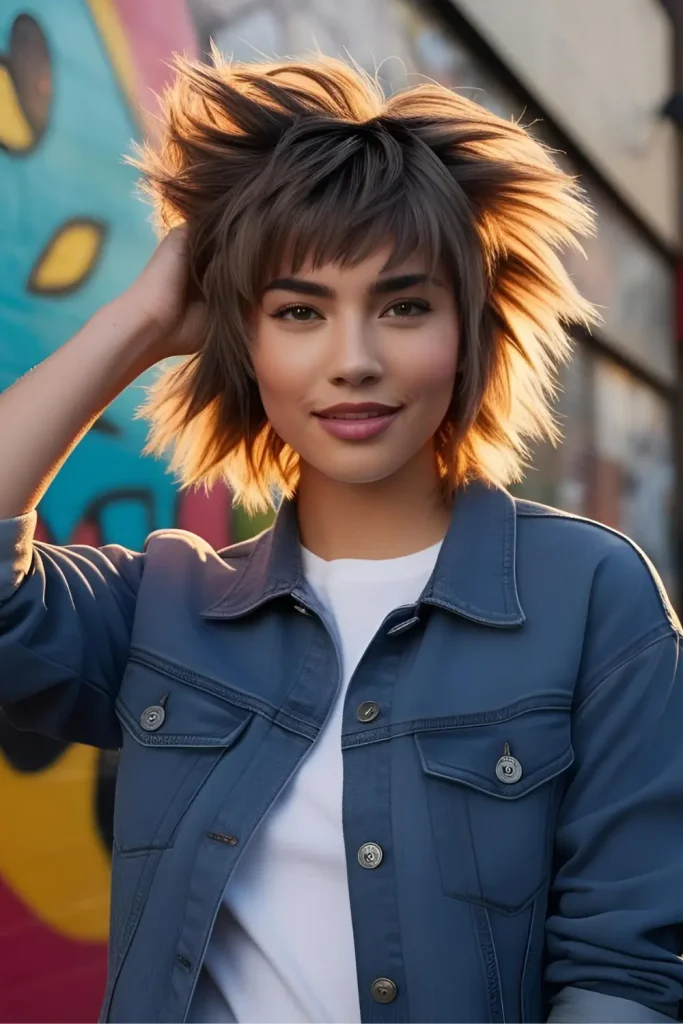
7. Less “Softness” Compared to Wolf Cuts with Bangs
For many, the bangs in a wolf cut soften the overall look, giving it a more delicate and feminine touch, especially with curtain bangs that frame the face. Without bangs, the wolf cut can feel much harsher, more rebellious, and less approachable. For those looking for a softer, more versatile look that can easily transition from casual to professional, the lack of bangs might make the wolf cut feel more intense and less flexible.
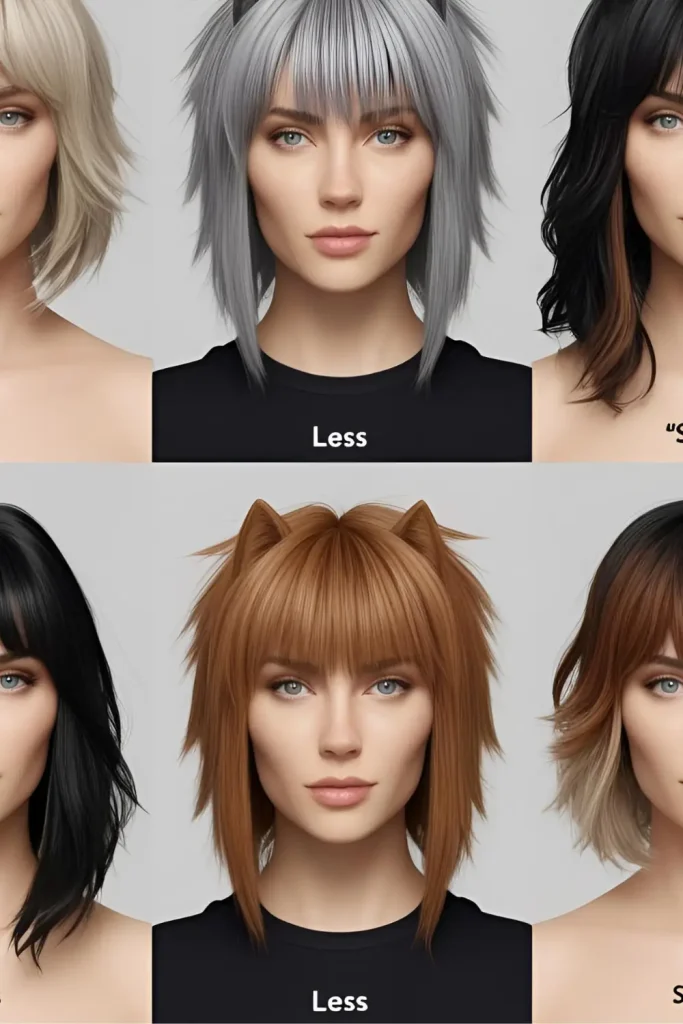
8. Requires More Frequent Trims to Keep It Fresh
The wolf cut is a layered style that works best when the layers are maintained regularly. Without bangs, the focus is entirely on the layers throughout the cut. As your hair grows out, the layers can become uneven or lose their structure, and the overall look can feel disheveled. Without the bangs to hide some of the growth, you’ll likely need to keep up with frequent trims to maintain the shape of the cut, making it a higher-maintenance option than you might expect.
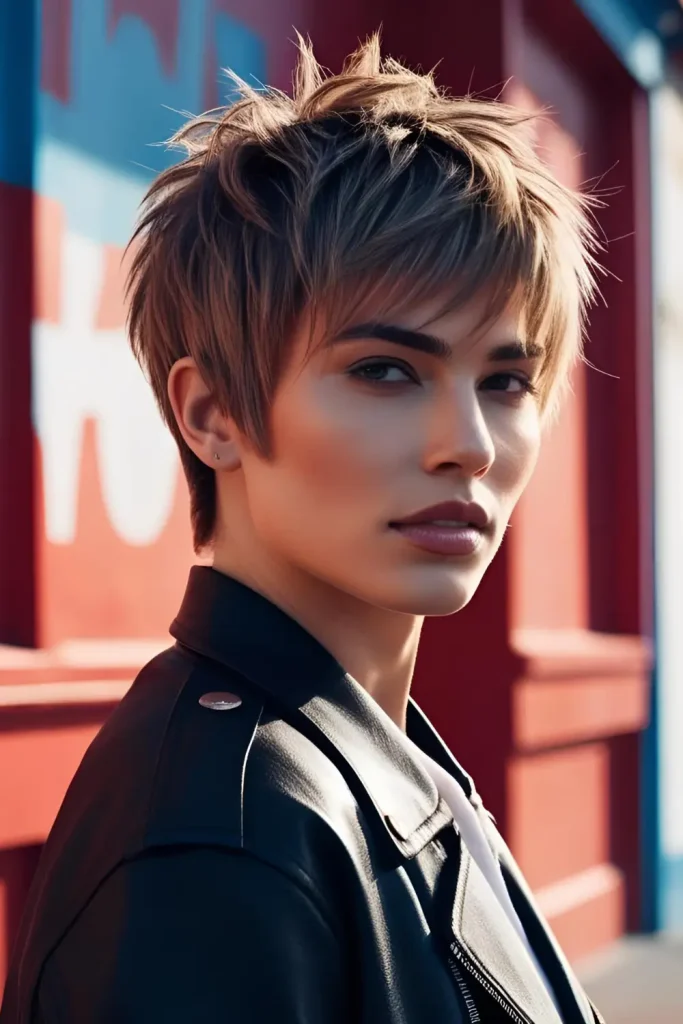
9. Not as Trendy or Edgy Without the Bangs
The wolf cut is inherently bold and edgy, often associated with a carefree, rebellious vibe. Without bangs, the cut can lose some of its “cool factor” and might appear more like a standard layered haircut. While it still maintains the volume and texture, the absence of bangs removes a significant part of the style’s edge, making it feel less trendy and less distinctive compared to the classic wolf cut with bangs.

Conclusion
The wolf cut without bangs may work well for certain individuals, but it’s not the best choice for everyone. While it offers a sleek, less-maintenance option compared to the version with bangs, it lacks the face-framing softness, volume, and versatility that make the wolf cut with bangs such a popular choice. Those with fine hair, angular face shapes, or who prefer a softer style may find the cut too harsh or flat without the bangs. Additionally, the maintenance and styling limitations could leave you feeling stuck with a style that’s difficult to manage. If you’re considering a wolf cut, it’s essential to carefully evaluate whether the version without bangs aligns with your hair type, face shape, and personal style before committing to this bold look.
